detail profile chico lourant
Peran Yang Di Mainkan Chico Lourant
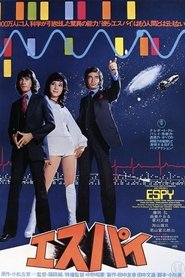 The film deals with the recruitment...
The film deals with the recruitment...ESPY 1974
The film deals with the recruitment of race car driver Jiro Miki (Masao Kusakari) and his dog, Caesar, to a group of people who use ESP, psychokinesis, and other special mental abilities to fight crime.
 Professor Nishiyama after studying and interpreting...
Professor Nishiyama after studying and interpreting...Prophecies of Nostradamus 1974
Professor Nishiyama, after studying and interpreting the prophecies of Nostradamus, realizes that the end of the world is at hand. Unfortunately, nobody listens to him until it is too late. As the effects of mankind's tampering of the earth - radioactive smog clouds, hideously mutated animals, destruction of the ozone layer - rage out of control, the world leaders hurtle blindly toward the final confrontation. The film sparked controversy in Japan and was subsequently pulled out of circulation, with no official video release of the uncut film.
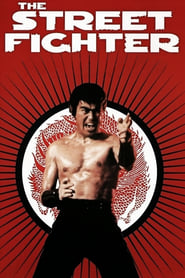 Takuma Tsurugi takes on the government...
Takuma Tsurugi takes on the government...The Street Fighter 1974
Takuma Tsurugi takes on the government, the police, the mafia and an international ring of kidnappers who aim to dispossess a beautiful young heiress of her millions.
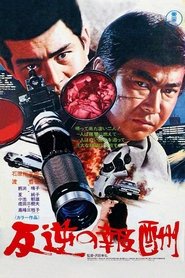 The film tells about drug trafficking...
The film tells about drug trafficking...Rebellion Reward 1973
The film tells about drug trafficking from Vietnam to Tokyo and Okinawa. Tetsuya Watari plays a photographer who uses his camera as a blackmail weapon. He is on the trail of a narcotics smuggler (Mikio Narita) and his beautiful contact (Haruko Wanibuchi). Watari meets a former gangster (Yujiro Ishihara) who is seeking revenge against Narita, his former partner. Watari and Ishihara become allies and hijack the dope shipment. But Narita threatens the life of Haruko, who turns out to be Ishihara's sister, and demands the dope in return for the girl.
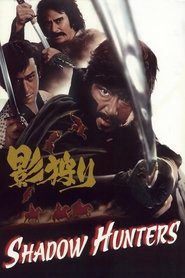 Set during the declining years of...
Set during the declining years of...Shadow Hunters 1972
Set during the declining years of the Tokugawa shogunate, Shadow Hunters details the questionably noble exploits of three ronin who act as "Shadow Hunters". These three ronin are not your normal ornery ruffians who are looking for a drink, a broad and someone to jab a sword into, but are in fact former samurai who, rather than follow their destroyed fiefs and murdered masters into death via seppuku, have dedicated their combined sword prowess to stopping the government from raping its daimyos for valuable resources.
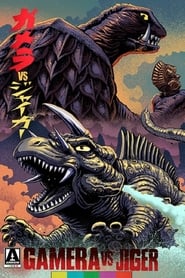 When a giant stone statue on...
When a giant stone statue on...Gamera vs. Jiger 1970
When a giant stone statue on Wester Island is disturbed, the legendary monster Jiger appears and heads for Japan. Gamera tries to stop this new rival, only to be injured when Jiger lays eggs inside of him. As two boys in a submarine go on a dangerous quest inside of Gamera's body to save him, Jiger threatens the Expo '70 world's fair in Osaka.
 A group of military personnel transporting...
A group of military personnel transporting...Genocide 1968
A group of military personnel transporting a hydrogen bomb are left to figure out how and why swarms of killer bugs took down their plane; the answer is more deliriously nihilistic, and convoluted, than you could imagine. Also known as War of the Insects, GENOCIDE enacts a cracked doomsday scenario like no other.
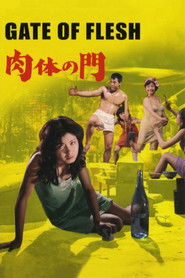 In the shady black markets and...
In the shady black markets and...Gate of Flesh 1964
In the shady black markets and bombed-out hovels of post–World War II Tokyo, a tough band of prostitutes eke out a dog-eat-dog existence, maintaining tenuous friendships and a semblance of order in a world of chaos. But when a renegade ex-soldier stumbles into their midst, lusts and loyalties clash, with tragic results. With Gate of Flesh, visionary director Seijun Suzuki delivers a whirlwind of social critique and pulp drama, shot through with brilliant colors and raw emotions.
 Akira a young jazzobsessed drifter returns...
Akira a young jazzobsessed drifter returns...Black Sun 1964
Akira, a young, jazz-obsessed drifter, returns to his squat, a ruined church, and finds Gill, a wounded African-American GI, on the run after the death of a white GI. Despite terrible misunderstandings and culture clash, Akira agrees to help Gill escape towards the sea, dodging military police along the way.
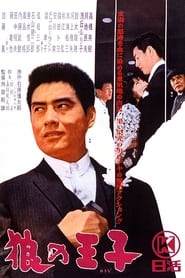 As the postwar turmoil continued Take...
As the postwar turmoil continued Take...Prince of Wolves 1963
As the post-war turmoil continued, Take, the boss of the waifs, stole the money of US soldiers and lived with friends. They were like children of wolves. By chance, they were found by and became a members of a yakuza family. Five years later, Take dominated the port town as a young boss.
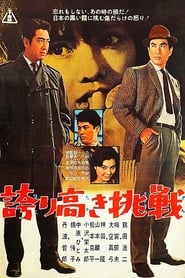 Journalist Kuroki is investigating clandestine arms...
Journalist Kuroki is investigating clandestine arms...The Challenge 1962
Journalist Kuroki is investigating clandestine arms sales to Southeast Asia. He discovers that the point man in an arms trade was also involved in the cover-up of a murder on an American base during the Allied Occupation. The film rolls along as a suspenseful thriller while offering a critique of political corruption, hypocrisy, and journalistic cowardice in postwar Japan.
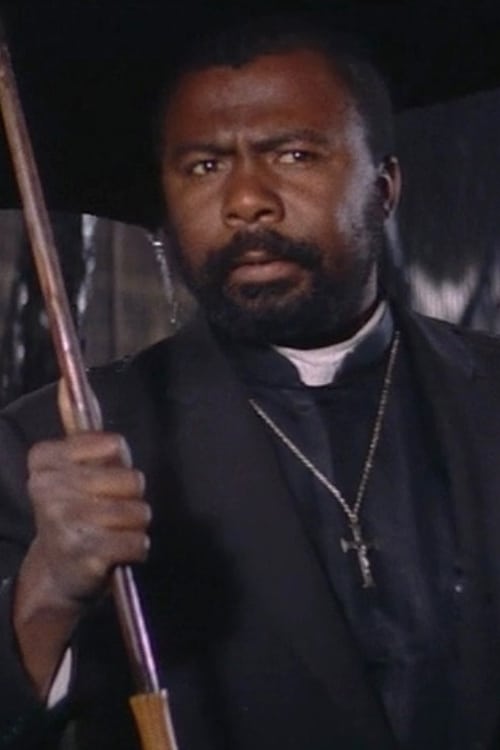
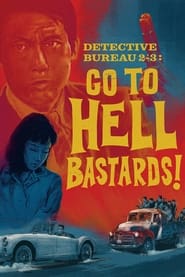 Tajima is a private detective in...
Tajima is a private detective in... A juvenile delinquent gets out of...
A juvenile delinquent gets out of...